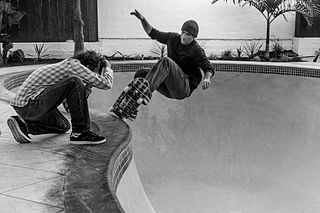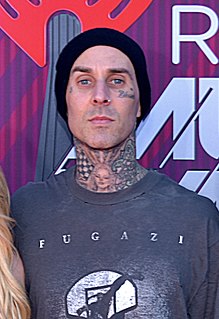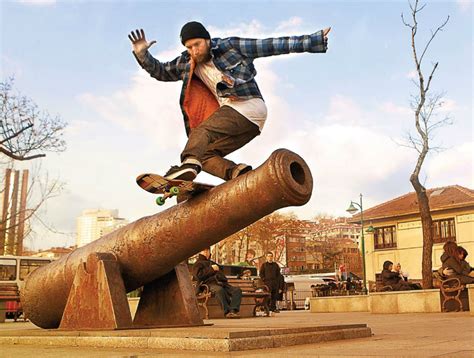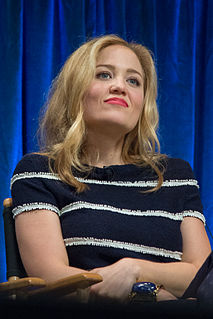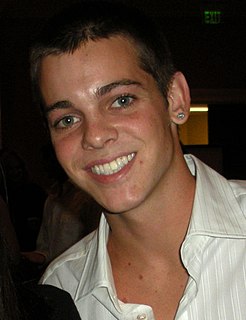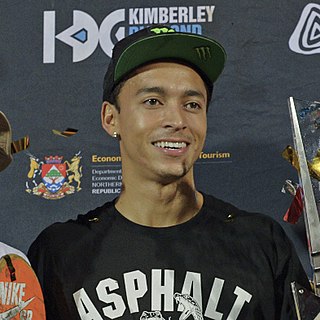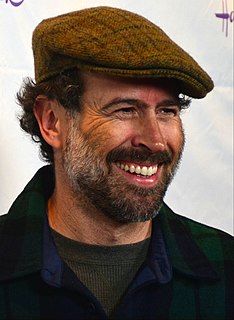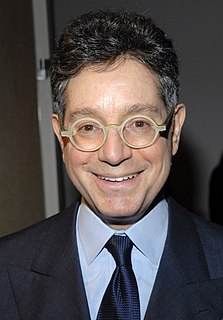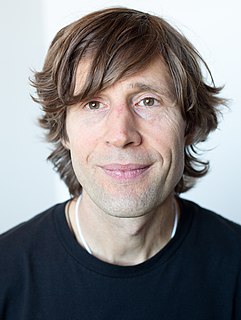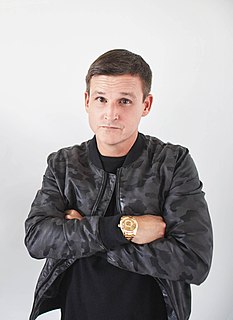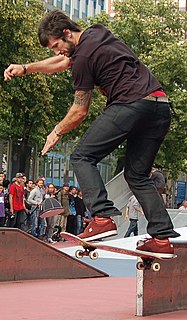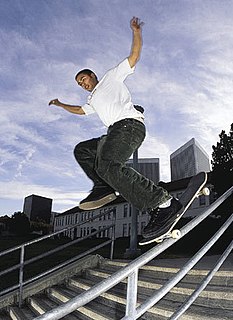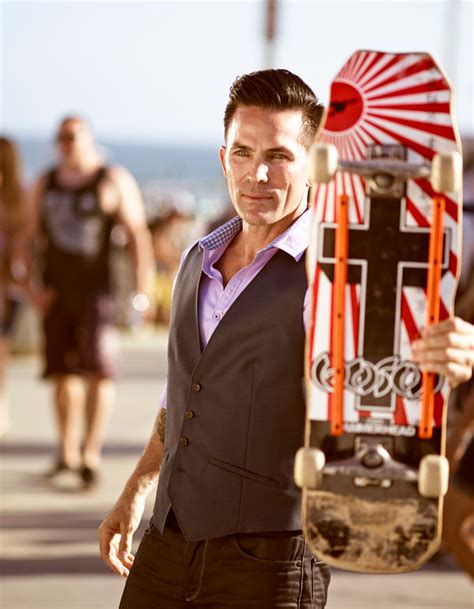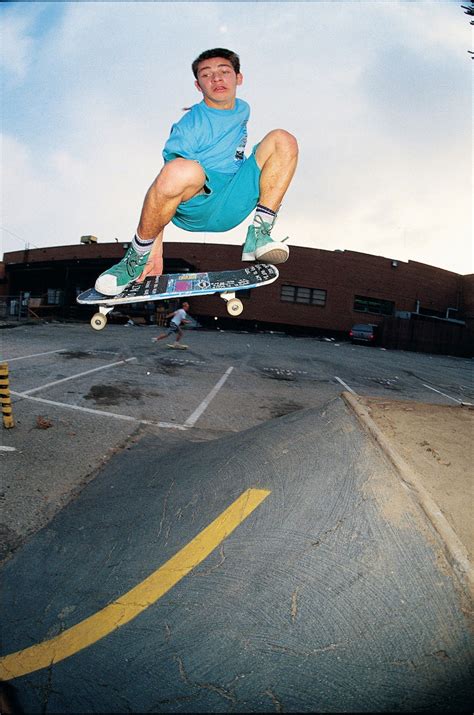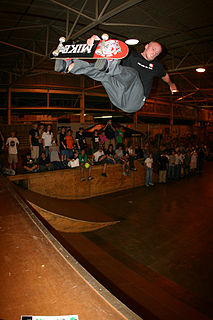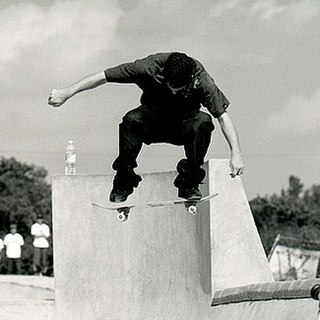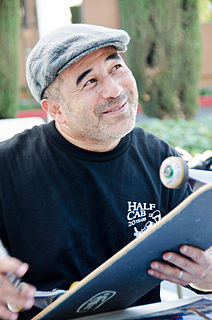A Quote by Lance Mountain
Skateboarding doesn't make you a skateboarder; not being able to stop skateboarding makes you a skateboarder.
Quote Topics
Related Quotes
Skateboarding has always been and continues to be creative and rebellious. Art and design are an extremely important part of skateboard culture, even if it's not recognized by the more elitist or pretentious members of the art world. Skateboarding itself requires creative adaptation to the streets and obstacles. My background as a skateboarder helped me to be a better street artist because I was already conditioned to look at the terrain opportunistically.
Growing up in Huntington Beach, you were either a traditional sports athlete, a skateboarder, or a surfer. I got my first skateboard when I was five and skated off and on over the years, did a little BMX racing as a kid, and then in my freshman or sophomore year I started getting a little bit more into skateboarding.
There's definitely a lot of people out there in the industry who feel that skateboarding shouldn't be a competitive sport. Or be a sport in general at all. Those are the people who want to keep skateboarding at the core side of things. But me personally, I love seeing the sport of skateboarding grow in general. It's just going to naturally happen.
